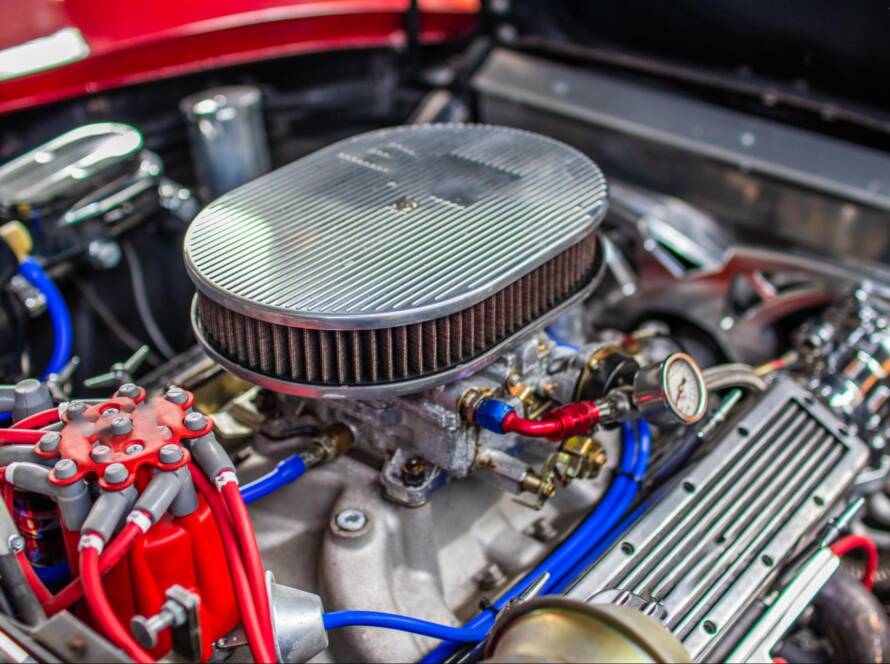Your vehicle may perform reliably for your commute or long road trips. Over time, however, you may notice the engine doesn’t respond as quickly or fuel efficiency drops. These changes often result from carbon deposits building up inside your engine, disrupting airflow and fuel delivery. These issues can reduce your vehicle’s performance and lead to costly repairs when left unaddressed. A fuel induction service offers a practical solution, restoring engine efficiency and helping your vehicle run smoothly.
What is the Purpose of Fuel Induction Service?
A fuel induction service is a specialized cleaning procedure for a vehicle’s fuel system. It focuses on removing carbon deposits from the intake valves, throttle body, and combustion chambers. Over time, gasoline engines accumulate carbon buildup, especially in direct injection systems. This service helps restore airflow and fuel delivery, improving engine performance and efficiency. It’s a crucial maintenance step that can help extend the life of your engine.
How Does Fuel Induction Service Work?
The process begins with applying a specialized cleaning agent to the intake system. This cleaner breaks down carbon deposits that clog essential engine components. A technician often sprays the cleaner directly into the throttle body while the engine runs, allowing the cleaner to circulate through the intake valves and combustion chambers. Once the procedure is complete, a test drive ensures that any remaining residues burn off effectively.
Signs Your Vehicle Might Need a Fuel Induction Service
When your engine starts running rough or misfires, it could signal carbon buildup. Poor fuel economy is another standard indicator that your system needs attention. You might also notice reduced acceleration and engine hesitation when you press the gas pedal. Sometimes, your check engine light might turn on, signaling the need for diagnostics. Regular maintenance can help catch these signs early before they lead to significant issues.
The Science Behind Fuel Induction Service
Understanding the mechanics behind fuel induction service starts with knowing how carbon deposits form. Engines burn fuel to generate power, but not all fuel burns completely. Over time, unburned fuel residues become carbon deposits that stick to engine components. These deposits restrict airflow and disrupt the engine’s ability to maintain proper combustion. Removing these deposits helps restore optimal performance and fuel efficiency.
How Carbon Deposits Form in Engines
When your engine burns fuel, small amounts of carbon can accumulate on valves, injectors, and combustion chambers. This buildup worsens with frequent short trips, low-quality fuel, or infrequent maintenance. Direct injection engines, although efficient, are particularly vulnerable to carbon deposits since fuel doesn’t wash over intake valves during combustion. Over time, this buildup can lead to performance loss, rough idling, and reduced fuel efficiency.
The Role of Modern Engine Technology
Modern engines have improved efficiency and lower emissions. However, they are often more prone to carbon buildup due to high-pressure fuel systems and tighter tolerances. Emission reduction technology, such as EGR (Exhaust Gas Recirculation) systems, can increase carbon residue inside the engine. As a result, newer vehicles may require regular fuel induction service to maintain peak performance and minimize harmful emissions.
Different Types of Fuel Induction Services
Fuel induction service isn’t one-size-fits-all; different techniques target specific engine components. Depending on your vehicle’s needs, your mechanic might recommend one or more types of induction cleaning. Understanding the variations helps you know what’s best for your engine’s health:
Throttle Body Cleaning
The throttle body controls airflow into the engine, and carbon deposits can reduce efficiency. Throttle body cleaning removes grime and deposits that accumulate over time. A clean throttle body ensures smoother acceleration and better fuel economy. This type of cleaning is often included in a comprehensive fuel induction service.

Intake Valve Cleaning
Direct fuel injection engines often suffer from carbon deposits on the intake valves, as fuel doesn’t wash over them during operation. Specialized cleaning solutions target these areas, restoring optimal airflow and improving engine efficiency. Intake valve cleaning can maintain power and fuel economy in modern vehicles. Regular cleaning prevents serious performance issues and helps extend engine life.
Fuel Induction Service vs. Fuel Injector Cleaning
While fuel induction service and fuel injector cleaning sound similar, they serve distinct purposes. Both services contribute to maintaining a healthy fuel system, but they target different components. Knowing their differences can help you decide which service your vehicle needs and when:
What’s the Difference?
Fuel induction service focuses on cleaning the intake valves, throttle body, and combustion chambers. It removes carbon buildup that disrupts air and fuel flow before combustion occurs. In contrast, fuel injector cleaning targets the fuel injectors themselves, ensuring they spray fuel effectively into the engine. While both services improve engine performance, fuel injector cleaning affects the fuel delivery system, whereas fuel induction service enhances airflow and combustion efficiency.
When Do You Need Each Service?
Your vehicle’s needs depend on its condition and driving habits. Fuel injector cleaning is necessary when injectors clog, and fuel delivery becomes inconsistent. Symptoms like rough idling, engine misfires, or poor fuel economy can signal the need for this service. Fuel induction service becomes essential when carbon deposits affect airflow, leading to sluggish acceleration and reduced power. Sometimes, scheduling both services together offers a comprehensive solution for maintaining peak engine performance.
Why is Fuel Induction Service Important?
Maintaining a clean fuel system is essential for your vehicle’s overall health. A clogged fuel system can reduce engine power and cause poor fuel economy. Regular fuel induction services help prevent carbon buildup from harming engine components. They ensure smoother engine performance, keeping your vehicle reliable on the road. Ignoring this maintenance could result in expensive repairs down the line.
Effects of Carbon Buildup on Engines
Carbon deposits naturally accumulate on intake valves and combustion chambers over time. It happens due to fuel combustion and can worsen with poor-quality fuel. Excessive carbon buildup restricts airflow, reducing engine efficiency and performance. You might experience rough idling, decreased acceleration, or even engine knocking. If left untreated, severe buildup can damage vital engine parts.
Benefits of Regular Fuel Induction Service
One of the most noticeable benefits is improved fuel efficiency. A clean fuel system allows better combustion, reducing fuel consumption. You’ll also experience enhanced throttle response and smoother acceleration. Regular service can prolong your engine’s life by reducing wear and tear on critical components. It also helps maintain optimal engine power and reliability.

Fuel Induction Service and Environmental Benefits
A clean fuel system doesn’t just benefit your vehicle—it also helps the environment. When engines run efficiently, they burn fuel more completely, producing fewer harmful emissions. Regular fuel induction service contributes to a cleaner engine, reducing your car’s environmental footprint and supporting cleaner air.
Reduces Emissions
Carbon buildup can increase harmful emissions like carbon monoxide and hydrocarbons. A cleaner engine burns fuel more efficiently, releasing fewer atmospheric pollutants. It not only benefits the environment but can also help your car pass emissions tests more easily. Reducing emissions also supports compliance with environmental regulations in many regions.
Improves Fuel Efficiency for a Greener Drive
An efficient engine uses less fuel to generate power, reducing overall consumption. That means fewer trips to the gas station and lower carbon dioxide emissions. A fuel induction service helps improve fuel economy by ensuring your engine stays clean. It’s a small but meaningful step toward reducing your environmental impact every time you drive.
How Often Should You Get a Fuel Induction Service?
The frequency of a fuel induction service depends on your driving habits and vehicle model. Most manufacturers recommend the service every 30,000 miles or so. However, vehicles driven in stop-and-go traffic or with frequent short trips may need it sooner. Using poor-quality fuel can also speed up carbon buildup, requiring more frequent cleanings. Always check your owner’s manual for specific service intervals.
When is Fuel Induction Service Not Necessary?
Newer vehicles often have advanced fuel systems that help reduce carbon buildup. The service may be unnecessary if your car is under 30,000 miles with no performance issues. Additionally, high-quality fuels with detergents can help keep engines cleaner for longer. Routine oil changes and regular maintenance can also minimize the need for induction service. It’s best to consult your mechanic to determine if your car truly needs it.
The Cost of Fuel Induction Service
A fuel induction service typically costs between $150 and $300. Prices vary based on your vehicle’s make and model and labor rates at different service centers. Luxury cars or those with complex fuel systems may cost more. While the upfront expense might seem high, it can save you from costly engine repairs later. The service can be worthwhile considering the potential fuel savings and performance boost.
Can You Perform Fuel Induction Service at Home?
DIY fuel induction kits are available, but using them carries some risks. You might not clean the system effectively without the proper tools and expertise. Some chemicals can also damage engine components if misused. While experienced DIYers might attempt it, professional service ensures the job is done thoroughly. A trained technician will use the right equipment and procedures for the best results.
What to Expect After a Fuel Induction Service
After the service, you may notice immediate improvements in engine performance. Acceleration becomes smoother, and throttle response sharpens. Your fuel economy improves over time as the engine runs more efficiently. It’s common for drivers to feel the engine running quieter and more smoothly. Regular follow-ups and quality fuel use can help maintain these benefits.
Fuel Induction Service: The Key to Peak Engine Performance
Your vehicle isn’t just a machine—it’s your gateway to freedom, adventure, and everyday reliability. Fuel induction service isn’t about ticking off a maintenance box; it’s an investment in the smooth, powerful ride you expect every time you turn the key. Don’t wait for sluggish starts or reduced fuel efficiency to remind you of what’s at stake. Prioritize your engine’s health now, and enjoy the confidence of knowing every mile ahead will be as efficient and powerful as it should be. Make the choice today to protect your engine’s future—a clean engine isn’t a luxury; it’s necessary for every driver who values performance and reliability.
Don’t let engine issues slow you down—visit the Dark Night Specialties blog for more insights and pro maintenance tips.


